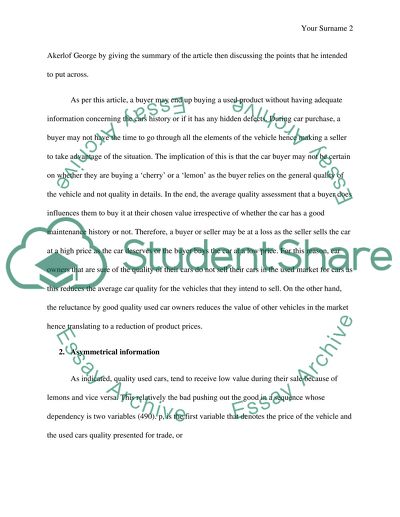Cite this document
(“The Market for Lemons Essay Example | Topics and Well Written Essays - 1250 words”, n.d.)
The Market for Lemons Essay Example | Topics and Well Written Essays - 1250 words. Retrieved from https://studentshare.org/macro-microeconomics/1487280-describe-how-the-economics-change-due-to
The Market for Lemons Essay Example | Topics and Well Written Essays - 1250 words. Retrieved from https://studentshare.org/macro-microeconomics/1487280-describe-how-the-economics-change-due-to
(The Market for Lemons Essay Example | Topics and Well Written Essays - 1250 Words)
The Market for Lemons Essay Example | Topics and Well Written Essays - 1250 Words. https://studentshare.org/macro-microeconomics/1487280-describe-how-the-economics-change-due-to.
The Market for Lemons Essay Example | Topics and Well Written Essays - 1250 Words. https://studentshare.org/macro-microeconomics/1487280-describe-how-the-economics-change-due-to.
“The Market for Lemons Essay Example | Topics and Well Written Essays - 1250 Words”, n.d. https://studentshare.org/macro-microeconomics/1487280-describe-how-the-economics-change-due-to.


